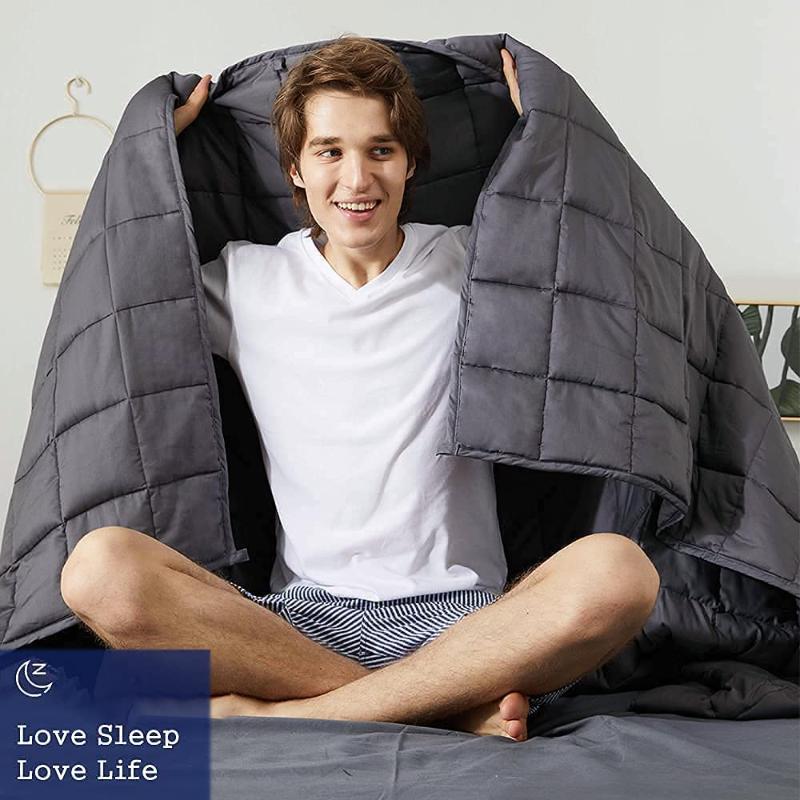Over the past few years, weighted blankets have grown in popularity for their many benefits. These thick blankets are designed to provide light pressure and weight to your body, for some, may help reduce stress and anxiety and improve sleep quality. But how do you know which heaviest blanket you should be using? Answering this question is critical to unlocking and enjoying the full benefits of a weighted blanket.
Types of Weighted Blankets
To determine the best weighted blanket for you, it's important to understand the different types available. Weighted blankets come in a variety of sizes and weights, offering options to suit everyone's needs. Ranging from 15 lbs to 35 lbs, these weighted blankets range from light to extra heavy, allowing users to customize their comfort level. They also come in different sizes, including sizes made for single beds and queen/king beds, allowing users to find the right product for their bed size.
Weighted blankets can be made from a variety of materials and contain different types of fillers, such as glass beads, plastic pellets, or even rice. Each material has unique properties that affect the type of pressure it provides.
Now that you know about the different types of weighted blankets, let's dive into what you should consider when choosing the heaviest and most weighted blanket for your needs.
Choosing the Right Weighted Blanket
When choosing the right weight for your weighted blanket, a general rule of thumb is 10% to 12% of your body weight. So if you weigh 140 pounds, look for a blanket that weighs around 14 to 17 pounds. However, please note that this is only a guideline and there is no "one size fits all" answer here. Some people may prefer a lighter or heavier blanket, depending on their level of comfort. In fact, one study found that most adults can safely and comfortably handle weights up to 30 pounds.
Blanket size is also important when considering how much weight you should have inside the blanket. In general, as the size of a blanket increases, so does its weight—because more particles need to be added to distribute its weight evenly over a larger area. This means that larger blankets (especially those designed to cover two people) can often hold more weight than smaller blankets without feeling too heavy or bulky.
Another factor to consider is where you will be using the weighted blanket. This affects which one is best for you and how much extra warmth or heaviness you need from it. A heavier blanket may feel more comfortable in a cooler home or climate, but if you're looking for something lighter and more airy, choosing a different type of material can help keep it lightweight while still providing warmth and comfort . Also, if you plan to use a weighted blanket on your bed as well as on a sofa or chair at home, make sure you find one that works in both settings—as some options can be too heavy or uncomfortable if used outside of bedtime.
Post time: Feb-02-2023



